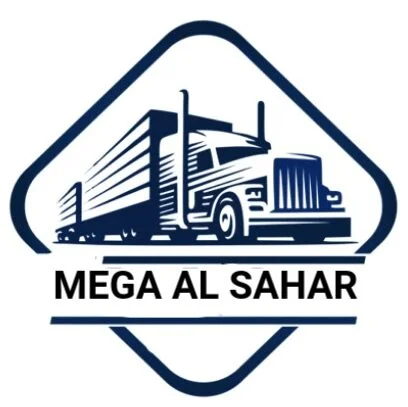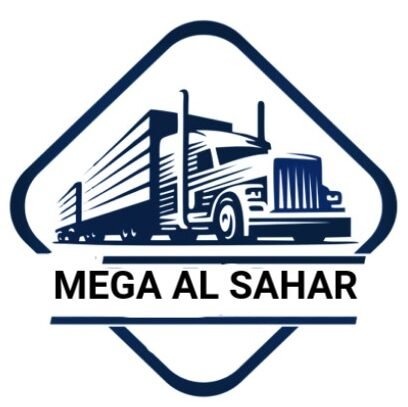
Hassle-Free Cargo Services for Businesses | Dubai to GCC Logistics
In today’s rapidly evolving business environment, the need for efficient logistics services has never been greater. The seamless movement of goods across borders is essential to meet the demands of global trade, particularly within the Gulf Cooperation Council (GCC) region. Dubai, positioned as a major global trade hub, is the epicenter of secure and timely cargo services for the GCC markets. Its strategic location, cutting-edge infrastructure, and comprehensive logistics networks make Dubai the natural gateway to Saudi Arabia, Qatar, Oman, Bahrain, and Kuwait.
This article explores the importance of secure and timely cargo services, the logistical advantages Dubai offers, the challenges faced in GCC logistics, and innovative solutions that ensure the smooth flow of goods in the region.
The Importance of Cargo Services Between Dubai and GCC Countries(Hassle-Free Cargo Services for Businesses)
The GCC countries collectively form one of the most dynamic economic blocs in the world. These nations rely heavily on efficient cargo services to support their industries, facilitate trade, and sustain their rapid urbanization. Dubai, as a central hub, connects the GCC to global supply chains, ensuring businesses and consumers have uninterrupted access to essential goods.
Economic Interdependence and Trade Growth(Hassle-Free Cargo Services for Businesses)
The GCC’s economic interdependence creates a high demand for cargo services. For instance, Saudi Arabia is one of the largest importers of goods from Dubai, ranging from electronics to construction materials. Simultaneously, smaller markets like Bahrain and Oman depend on Dubai’s logistics prowess to meet their domestic needs. Reliable cargo services strengthen these trade ties and support mutual economic growth.
Supporting Diverse Industries
From retail and automotive to oil and gas, diverse industries depend on the timely delivery of raw materials, finished goods, and machinery. Efficient logistics systems ensure businesses can operate without delays, maintaining supply chain continuity and minimizing losses.
Why Dubai is the Logistics Hub of the GCC(Hassle-Free Cargo Services for Businesses)
Dubai’s logistics infrastructure is unparalleled in the GCC. With its strategic position bridging the East and West, Dubai offers unique advantages that elevate its role as a logistics hub.
World-Class Ports and Airports
Dubai boasts exceptional port facilities such as Jebel Ali Port, one of the busiest and most advanced ports in the world. Complementing this is the Al Maktoum International Airport, designed to handle significant volumes of air cargo with state-of-the-art technology and streamlined processes. Together, these facilities form a robust network for multi-modal transportation.
Free Zones and Business-Friendly Policies
Dubai’s free zones, such as the Dubai Logistics City and JAFZA (Jebel Ali Free Zone), offer businesses tax exemptions, streamlined customs processes, and superior infrastructure. These zones provide an ecosystem tailored to support high-volume trade, making them integral to the region’s supply chain.
Advanced Technology Integration
Dubai’s logistics sector has embraced cutting-edge technologies like artificial intelligence (AI), blockchain, and Internet of Things (IoT) devices. These innovations enhance transparency, optimize operations, and enable real-time tracking, ensuring shipments arrive securely and on time.
Key Features of Secure and Timely Cargo Services(Hassle-Free Cargo Services for Businesses)
To maintain its leadership in logistics, Dubai-based cargo service providers focus on security, efficiency, and customer satisfaction. Key features include:
Advanced Tracking Systems
Modern cargo services employ GPS tracking and IoT-enabled devices to provide real-time updates on shipments. Customers can monitor the progress of their goods from dispatch to delivery, ensuring peace of mind.
Secure Packaging and Handling
Cargo services prioritize secure packaging and expert handling, particularly for fragile, high-value, or temperature-sensitive goods. Proper handling prevents damage and ensures compliance with international safety standards.
Compliance with Customs Regulations
Navigating customs procedures across GCC borders is complex. Reliable logistics companies specialize in managing the paperwork and ensuring adherence to all regulatory requirements, thereby minimizing delays and avoiding fines.
Flexible Transportation Modes
Providers offer multi-modal transportation options, including road, air, and sea. By leveraging Dubai’s extensive network, logistics companies can tailor solutions to suit specific shipment needs, balancing cost, speed, and security.
Challenges in GCC Logistics(Hassle-Free Cargo Services for Businesses)
While Dubai’s logistics sector is highly efficient, cargo services to the GCC are not without challenges. Understanding these obstacles is essential for developing effective solutions.
Border Delays and Customs Procedures
Cross-border logistics often face delays due to varying customs protocols in GCC countries. Documentation errors, insufficient pre-clearance, and lengthy inspection processes can disrupt the supply chain.
Harsh Climate Conditions
The GCC’s arid climate presents logistical challenges, particularly for temperature-sensitive goods like pharmaceuticals and perishable foods. High temperatures and occasional sandstorms can impact the integrity of cargo and delay transport.
Rising Costs
Fuel price fluctuations, labor shortages, and increasing operational costs can make cargo services expensive. Logistics providers must find innovative ways to control costs while maintaining quality.
Infrastructure Bottlenecks
Although Dubai boasts world-class infrastructure, some neighboring GCC countries face logistical bottlenecks due to less-developed facilities, road congestion, or limited handling capacities at ports.
Innovative Solutions for Seamless Cargo Services(Hassle-Free Cargo Services for Businesses)
To overcome these challenges, Dubai-based logistics providers adopt a range of innovative strategies that ensure secure and timely deliveries.
Technology-Driven Optimization
The integration of AI, predictive analytics, and blockchain ensures efficiency and transparency in logistics. AI-powered route optimization reduces transit times, while blockchain enhances the security of supply chain documentation.
Specialized Transportation Solutions
For sensitive goods, providers use refrigerated trucks, insulated containers, and specialized packaging to maintain product integrity. Such measures are crucial for industries like healthcare and food.
Pre-Clearance Programs
Working closely with customs authorities, many providers offer pre-clearance services. This minimizes border delays by enabling faster processing of shipments through digital documentation and automated systems.
Collaborative Logistics Networks
Strong partnerships between Dubai-based providers and local agents in GCC countries enhance coordination and reduce transit times. This collaboration ensures a seamless flow of goods, even in remote or challenging areas.
Choosing the Right Cargo Service Provider(Hassle-Free Cargo Services for Businesses)
With numerous logistics providers in the market, selecting the right one is critical for businesses aiming to maintain operational efficiency and customer satisfaction. Key considerations include:
Reputation and Experience
A provider’s reputation and experience in handling GCC logistics are crucial. Look for companies with a proven track record, particularly those that specialize in your industry or cargo type.
Comprehensive Service Offerings
Choose providers that offer end-to-end solutions, including door-to-door delivery, customs clearance, and cargo insurance. A one-stop solution simplifies the logistics process and reduces overheads.
Transparent Pricing
Ensure the provider offers competitive and transparent pricing. Hidden fees and ambiguous cost structures can disrupt budgets, especially for small and medium-sized businesses.
Real-Time Support
Opt for providers with robust customer support systems. Real-time updates, responsive communication, and proactive problem-solving reflect a company’s commitment to service excellence.
The Future of Dubai-to-GCC Logistics(Hassle-Free Cargo Services for Businesses)
The logistics industry in the GCC is poised for significant growth, driven by evolving consumer demands, technological advancements, and regional integration efforts. Key trends shaping the future include:
Digital Transformation
The widespread adoption of digital tools, such as IoT sensors and cloud-based platforms, will enhance visibility and efficiency across the supply chain. Predictive maintenance and automated inventory management will further streamline operations.
Sustainability Initiatives
Logistics providers are increasingly adopting eco-friendly practices, such as using electric vehicles, optimizing delivery routes, and reducing packaging waste. These measures align with global efforts to combat climate change.
Growth of E-Commerce
The e-commerce boom in the GCC demands faster, more flexible logistics solutions. Providers are investing in last-mile delivery services and localized warehouses to cater to this rapidly growing sector.
Regional Infrastructure Development
Ongoing investments in regional infrastructure, such as new ports, highways, and trade corridors, will strengthen connectivity and reduce logistical bottlenecks across the GCC.
Conclusion
Secure and timely cargo services from Dubai to the GCC are vital for regional trade and economic growth. By leveraging Dubai’s world-class infrastructure, advanced technologies, and professional expertise, logistics providers ensure the seamless flow of goods across borders. While challenges persist, innovative solutions and a commitment to excellence continue to drive the industry forward.
As the logistics landscape evolves, businesses and individuals can rely on Dubai as the cornerstone of efficient, secure, and reliable cargo services in the GCC. With its forward-looking strategies and unwavering focus on customer satisfaction, Dubai’s logistics sector is well-positioned to meet the demands of a dynamic and interconnected future.







